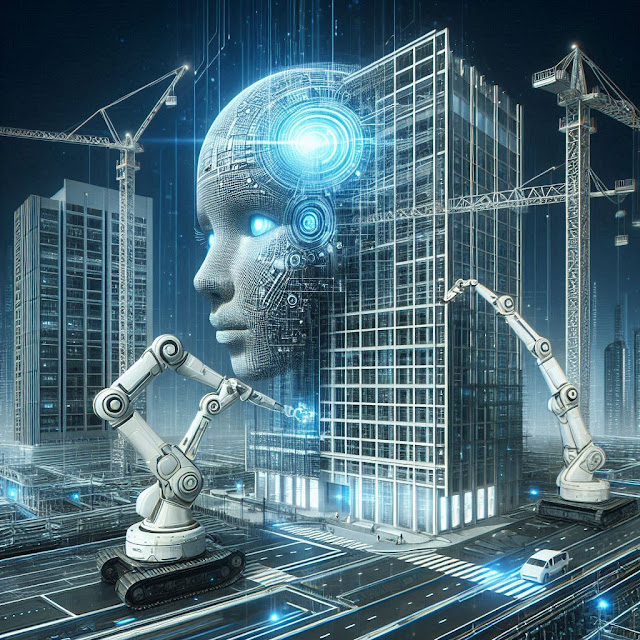Introduction
The rapid evolution of artificial intelligence (AI) and robotics is reshaping many industries, including construction. With innovations in design, planning, and automated machinery, the idea of an AI constructing a complete building by itself has captured the imagination of many. This article explores the current capabilities of AI in the construction industry, the challenges that remain, and the future potential for fully autonomous building projects.
1. AI in Design and Planning
Modern architecture increasingly relies on AI to streamline the design process. Advanced algorithms can generate optimized building designs based on parameters such as energy efficiency, structural integrity, and aesthetic appeal. AI tools help architects simulate various scenarios and predict outcomes before construction even begins. Techniques like generative design allow computers to propose thousands of design alternatives, adjusting for materials, environmental factors, and building codes. While AI significantly enhances the planning stage, its role is primarily as a powerful decision-making tool rather than a solo designer.
2. AI-Powered Robotics in Construction
In recent years, construction robotics have made impressive strides. Robots equipped with AI can perform tasks like bricklaying, concrete dispensing, and even assembly of prefabricated components with high precision. For instance, robotic arms and autonomous drones are already in use for surveying sites and transporting materials. These machines, guided by AI algorithms, can work in hazardous environments and execute repetitive tasks more efficiently than human labor. However, these systems are typically part of a larger, human-supervised process rather than completely independent builders.
3. Integration of AI in Project Management
AI is transforming project management by optimizing workflows, tracking progress, and predicting potential delays. Through real-time data analysis, AI systems can coordinate scheduling, manage supply chains, and allocate resources effectively. These tools enable construction managers to mitigate risks and ensure timely delivery of projects. Although project management tools driven by AI are becoming more reliable and autonomous, they still require human expertise to interpret nuances, make complex decisions, and uphold ethical standards.
4. Challenges to Fully Autonomous Construction
While AI and robotics have advanced tremendously, several challenges prevent the realization of a fully autonomous building process:
Complexity of Construction Processes: Building a structure involves numerous interdependent tasks, from foundation work to finishing details. Integrating all these tasks under one autonomous system remains a significant engineering challenge.
Regulatory and Safety Concerns: Construction is a highly regulated industry. Compliance with local building codes, safety standards, and environmental considerations requires human oversight that AI has yet to fully replicate.
Technical Limitations: Despite advancements, current AI systems are not capable of real-time adaptive problem-solving in unpredictable environments. Variables such as weather changes, material inconsistencies, and unforeseen structural issues often necessitate human intervention.
Ethical and Economic Implications: Transitioning to a fully autonomous construction process raises important questions about job displacement, accountability, and liability if errors occur during construction.
5. Future Outlook and Innovations
The future of AI in construction is promising but will likely be evolutionary rather than revolutionary in the near term. Researchers and engineers are continuously developing more versatile AI systems and smarter robots. Hybrid models—where AI handles design, project management, and routine tasks while human experts focus on supervision and complex decision-making—are gaining popularity. In the long term, as technology matures and regulatory frameworks evolve, we may see more aspects of construction becoming autonomously managed. However, achieving a scenario where AI constructs an entire building without any human input remains a distant goal that hinges on breakthroughs in multiple fields.
Conclusion
While artificial intelligence is fundamentally changing the landscape of construction, the prospect of an AI building a complete structure by itself involves overcoming significant technical, regulatory, and ethical hurdles. AI enhances every phase of construction—from design and planning to automation and project management—but its current role is more collaborative than autonomous. The future may hold the promise of fully integrated systems that minimize human intervention, yet for now, AI serves best as a powerful augmentation tool that drives efficiency, safety, and innovation in the construction industry.



